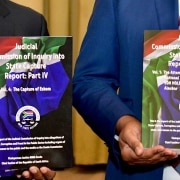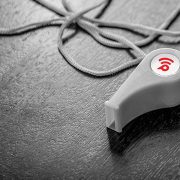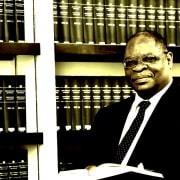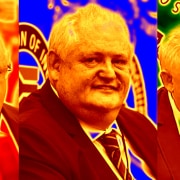|
Getting your Trinity Audio player ready...
|
By Rebecca Davis
First published on Daily Maverick
“The response has not been what we were expecting,” remarked Deputy Chief Justice Raymond Zondo when he opened the first day of the state capture inquiry. “The response has been quite disappointing.”
Zondo was referring to the apparent public reluctance to comply with a call put out by the commission of inquiry for those with knowledge of state capture to come forward with their evidence.
Yet if one considers the fate of a number of high-profile South African whistle-blowers, the real surprise is not that people are reluctant to expose corruption – but that people are still willing to do it at all.
Punished for doing right
Being forced to flee the country. Living in secrecy under false identities. Receiving death threats. Having their children targeted for harassment. Experiencing their intimate relationships disintegrate under the strain of perpetual fear for their safety.
These are just some of the experiences that four whistle-blowers at last week’s Daily Maverick The Gathering: Media Edition recounted as a result of their decision to blow the whistle on state capture.
Their treatment reflects a much wider problem. Former Public Protector Thuli Madonsela frequently issued warnings about the status of South African whistle-blowers, once describing them as “strangled financially, socially and economically” and often failed by the National Prosecuting Authority (NPA) when it comes to upholding their rights.
Public Enterprises Minister Pravin Gordhan’s announcement last week that his department is establishing a whistle-blower hotline as part of efforts to tackle corruption in state-owned entities may seem like a positive step forward, but the evidence shows that those who have attempted to expose wrongdoing at SoEs in the past have often been stymied by those in power.
To give one example: in September 2017, an anonymous whistle-blower emailed executives and board members of the Public Investment Corporation to allege that the state-owned asset manager’s CEO Dan Matjila had corruptly channelled funds to a girlfriend. Matjila’s immediate response was to instruct executives to report the matter to the police – not to investigate his alleged corruption, but to track down the whistle-blower.
In that instance, the whistle-blower in question had covered his electronic tracks to the extent where they were untraceable without the assistance of authorities. This reflects a global priority for many whistle-blowers: the ability to remain anonymous to protect themselves from retaliation.
Protection scant for whistle-blowers
But as Helen Suzman Foundation researcher Cherese Thakur noted in July in a series of briefs on South Africa’s whistle-blower protection mechanisms, the current Protected Disclosures Act “does not contain any specific provisions relating to confidentiality”.
As such, writes Thakur, “there is no mechanism in place to protect them in instances where their identities becoming public could cause them to experience harm in or out of their work environment, endanger their health or safety or that of people around them”.
The possibility of such harm is very real. The Open Democracy Advice Centre’s Gabriella Razzano pointed Daily Maverick to the 2018 Assassination Witness Report, which recorded 150 political assassinations in 2017 and noted:
“In multiple assassination cases in South Africa, this study found that the victim was a whistle-blower or was known to have a strong anti-corruption stance.”
These threats extend beyond the political sphere. At hearings in June in Johannesburg into the e-hailing industry, concerns about safety meant that witnesses had to be protected by preventing the public and the media from attending their testimony.
When the Zondo commission put out its call for members of the public to supply evidence on state capture in June, it indicated that provision could be made for those wanting to do so anonymously – but subject to slightly vague conditions. The commission’s statement on the matter read:
“Anyone who has information or evidence relating to allegations falling within the terms of reference of the commission but who wishes his or her identity to be kept confidential may also contact the commission and‚ in appropriate circumstances‚ and with due regard to the law and the rights of the implicated persons‚ the commission will take such steps as may be taken in law to keep his or her identity confidential.”
From the looks of things, there are sufficient caveats within that sentence to potentially deter many fearful witnesses.
Even when whistle-blowers’ identities are not publicly disclosed, they may still be under threat from those with the resources and wherewithal to track them down privately. In such cases, the available protection from the state is minimal – which is why in extreme situations, such as those of the #GuptaLeaks whistle-blowers, the safest avenue may be to leave the country. But this is a route available only to those with deep pockets or private support.
Victimised rather than celebrated
Thakur notes: “A whistle-blower may not meet the threshold requirements to be a ‘witness’ for the purposes of the Witness Protection Act but may face danger equal to or more severe than that which is faced by witnesses who do qualify for such protection.”
Eskom whistle-blower Suzanne Daniels says that her home was targeted for multiple break-ins following her decision to go public with her knowledge, despite the fact that it had never experienced any such incidents previously.
Trillian whistle-blower Bianca Goodson, meanwhile, acknowledges that much of her fear for her own safety may have stemmed from paranoia – but the effects on her personal relationships and mental health were still devastating.
The fear of physical harm is only one aspect of the multiple disincentives to expose wrongdoing in South Africa. Another is the possibility of having your motives scrutinised, your character questioned and your reputation tarnished – a situation not unlike that faced by individuals seeking to report sexual assault.
This is despite the fact that the vast majority of Protected Disclosures Act cases to come before South African courts thus far have been found to be valid. Says Razzano: “There is little evidence [to justify] concerns about ‘frivolous’ or ‘vexatious’ claims.”
Yet being a whistle-blower in South Africa remains a highly unenticing role – raising the question of whether more needs to be done to provide positive incentives to expose wrongdoing.
Thakur points out that in the US there is a financial lure for certain forms of whistle-blowing.
“The False Claims Act allows whistle-blowers to receive a portion of monies recovered following a disclosure relating to the defrauding of the government.”
If this were the case in South Africa, we might see a greater public appetite for whistle-blowing, and a longer queue of witnesses at the Zondo commission – since, as it stands, those who go public have little to gain and a great deal to lose.
To quote Edward Snowden, the man who exposed the extent of US state surveillance:
“The sad truth is that societies that demand whistle-blowers be martyrs often find themselves without either, and always when it matters the most”.







